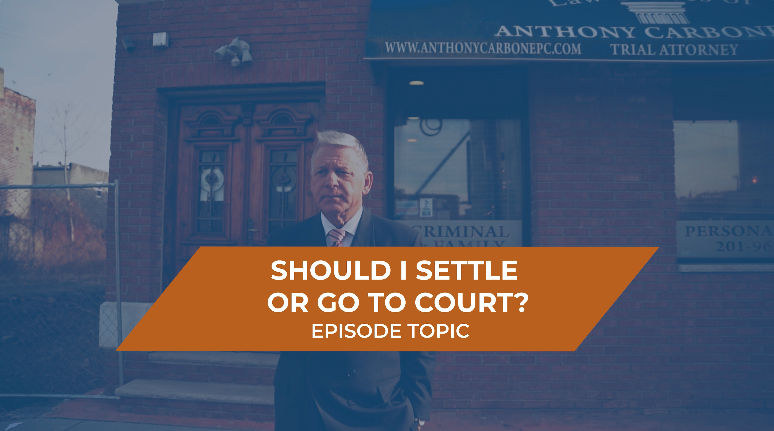
In considering whether you want to risk your case and take it to court or if you should settle, first and foremost, it’s going to depend on whether you’re going to be a good witness and whether or not your witnesses to your case are going to be available and they’re going to be credible and they’re going to be good witnesses who are going to support your position.
Most people, as soon as they walk into that courthouse, their level of anxiety rises and that’s to be expected because it’s the first time they’ve walked into a courthouse and they have no familiarity with it.
They don’t know where the courthouse is located. They don’t know where to park. They don’t know where the courtroom is located. They don’t know the judge. So there are so many variables that come into that that really give the client angst and if you’re someone that doesn’t want to be subjected to that and you can settle the case, settle it. Settle it.
Sometimes, you know, you just don’t want a jury who’s going to make a decision on whether you were injured and whether you deserve compensation, whether your injury meets any of the exceptions to the verbal threshold law.
So if you had an opportunity to settle your case before you walk into court, I tell clients to settle it. Why go through the aggravation for a couple of dollars that you may get and you may not get? Because remember, when you try a case, the jury can give you more than the settlement offer. They can give you the same as the settlement offer. They can give you less than the settlement offer or they can give you nothing.
So if you’re looking for something that has more certainty and less anxiety, then I always tell the client to settle the case, be done with it, and move on.


